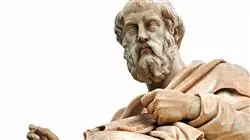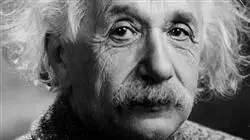University certificate
The world's largest faculty of humanities”
Why study at TECH?
A program that will guide you through transcendental properties of being in a multidisciplinary and 100% online experience”

What is science and what is it not? This is the opening question to Epistemology. There are many schools of thought that defend the underlying relationship between Metaphysics and the development of empirical knowledge through a unified conception of reality, establishing, as such, the limits of ontology. Philosophy of Science arises from this basis, thanks to which, human beings apply certain meanings to concepts based on the analysis and evaluation of procedural issues that precede it: a strategy, a rule or a series of steps that result in an ultimate goal and its achievement in an effective manner.
Thanks to the exhaustive work of a group of experts in the Humanities, TECH has been able to launch this complete and comprehensive program in Epistemology and Philosophy of Science. It is an academic experience through which students will be able to intensively go through the most relevant issues in Metaphysics over time, and delve into the relationship of this discipline in the development of knowledge and the conception of nature. Furthermore, students will have the opportunity to delve into the origins of philosophy and retrace its history from Humanism and the Renaissance (with special emphasis on its leading authors), to conclude by analyzing the relationship between philosophy, experimental science and the environment that surrounds it.
To this end, they will have 1,500 hours of diverse material, including an exclusive seminar where they will deal with current bioethical problems and their philosophical transcendence, as well as their application in everyday life. It is, therefore, a unique academic opportunity to access a training program through which graduates will work in the search for the most logical answers about the universe and existence in a 100% online format, without fixed schedules and at their own convenience.
Would you like to delve into knowledge as a scientific and philosophical concept? Enroll in this Professional master’s degree and become an expert in Epistemology in just 12 months”
This Professional master’s degree in Epistemology and Philosophy of Science contains the most complete and up-to-date academic program on the market. Its most notable features are:
- Practical cases presented by experts in Philosophy and the Humanities
- The graphic, schematic, and practical contents with which they are created, provide practical information on the disciplines that are essential for professional practice
- Practical exercises where self-assessment can be used to improve learning
- Its special emphasis on innovative methodologies in Pediatric Orthopedics
- Theoretical lessons, questions to the expert, debate forums on controversial topics, and individual reflection assignments
- Content that is accessible from any fixed or portable device with an Internet connection
The Professional master’s degree also includes a specific module dedicated to the history of modern philosophy, so you can gain in-depth knowledge of its origin and the characteristics that define it”
The program’s teaching staff includes professionals from the sector who contribute their work experience to this training program, as well as renowned specialists from leading societies and prestigious universities.
The multimedia content, developed with the latest educational technology, will provide the professional with situated and contextual learning, i.e., a simulated environment that will provide immersive specialization programmed to learn in real situations.
This program is designed around Problem-Based Learning, whereby the professional must try to solve the different professional practice situations that arise throughout the program. For this purpose, the student will be assisted by an innovative interactive video system created by renowned and experienced experts.
What is the connection between philosophy and experimental science? In this program you will find the answer to this and other questions"

You will have access to an exclusive seminar on bioethical problems where you will delve into aspects of principlism, utilitarianism and functionalism"
Syllabus
The syllabus design for this Professional master’s degree has been carried out by a team of experts in the area of Humanities, more specifically in Philosophy of Science. Thanks to this, it has been possible to shape an exhaustive and intensive program that gathers the information required to master this discipline in 12 months of specialization. In addition to the very complete syllabus, hours of additional material have been selected that graduates can use to personalize their work according to their level of demand. All this presented in a convenient, 100%-online program with complete accessibility from any device with an Internet connection.

Thanks to the flexibility granted by a 100% online format, you will be able to access the content from anywhere, with no timetable or limits. You will also be able to download the content to consult it, even after the program has ended”
Module 1. Metaphysics I
1.1. Purpose and Location of the Treaty
1.2. Method and Principles in Metaphysics
1.3. Metaphysical and Anti-Metaphysical Philosophies
1.4. Fundamental Problems in Metaphysics
1.5. Experiential Data and Its Theoretical Problems
1.6. History of the Question of Movement: Antiquity, the Middle Ages and Modernity
1.7. Matter and Form as Principles of Specification and Individuality
1.8. Composition of Act and Potency of Finite Beings
1.9. Experiential Data and Its Theoretical Problems
1.10. Aristotelian Doctrine: Four Causes History and Meaning of the Question
1.11. Acting as an Exercise of Efficient Causality
1.12. Self-Causation and the Principle of Finality
Module 2. Metaphysics II
2.1. Metaphysics in the Static Sense: Being and Entity
2.2. Unity and Truth
2.3. Beauty and Kindness
2.4. The Matter of Relativism
2.5. The Classification of Being
2.6. Historical Background of the Doctrine of Participation and Analogy of Being
2.7. Philosophical Classification of Analogy of Being. Proportionality. Attribution
2.8. Logical and Mathematical Senses of Analogy of Being
Module 3. Metaphysics III
3.1. Introduction
3.1.1. The Philosophical Study of Absolute Being
3.1.2. God, Humans and Being
3.1.3. Natural and Supernatural Theology
3.2. God as a Problem
3.2.1. The Rejection of God: Atheism and Its Forms; Sociological, Psychological and Philosophical Arguments; Discussion of Atheism
3.2.2. The Witnesses of the Absolute: Basic Forms of the Affirmation of God; the Affirmation of God in Religions; the Question of God in the History of Philosophy
3.2.3. The Philosophical Question of God: Conditions of Possibility of Knowing God; the Traces of the World that Point to God; in Search of the True God
3.3. On the Existence of God
3.3.1. The Existence of God as a Problem: The Challenge of the Kantian Critique; Delimitation of the Problem; Possibility and Necessity for Demonstration; Metaphysical Nature of Philosophical Demonstration based on Causality; Typology of Philosophical Demonstration
3.3.2. The Ontological Argument: History and Critical Evaluation
3.3.3. The Five Thomistic Ways to Prove the Existence of God: Text and Critical Evaluation
3.3.4. Anthropological Arguments: Intuitionism, Argument Ex Veritate, Argument Ex Moralitate, Arguments on the basis of Human Spiritual Dynamism, Historical Argument, Argument from the Testimony of the Mystics
3.3.5. General Assessment of the Philosophical Proofs of the Existence of God
3.4. On the Essence of God
3.4.1. Human Knowledge of the Divine Nature: Ineffability of God; Analogy; Human Language about God
3.4.2. Entitative and Personal Attributes of the Divine Being: Simplicity, Spirituality, Subsistent Fullness of Being and Aseity; God and the Transcendental Properties of Being; Negative Attributes: Infinity, Immensity, Eternity; Personal Attributes: Intelligence, Will, Freedom, Power, Personality
3.5. God and the World
3.5.1. Insufficient Models in the Relation Approach: Pantheism and Deism
3.5.2. Principles of God's Relationship with the Universe: Divine Immanence and Transcendence
3.5.3. Divine Operational Attributes with respect to the World: Creation, Preservation, Contest
3.6. God and Humans
3.6.1. God and Human Liberty
3.6.2. God and History
3.6.3. God and Evil
3.6.4. God as the Supreme Good and the Ultimate Foundation of Values
Module 4. Philosophy of Knowledge I
4.1. Introduction
4.1.1. Contemporary Cultural Challenge: Relativism and Distrust in the Human Capacity to Know the Truth
4.1.2. Nature of the Philosophy of Knowledge and Stating the Critical Problem
4.1.3. The Matter of Method in Epistemology
4.1.4. The Place of Epistemology in Philosophical Knowledge
4.1.5. Epistemology and Science
4.2. History of the Knowledge Problem
4.2.1. Ancient History: Dogmatism, Socrates and the Sophists, Plato, Aristotle and Hellenism
4.2.2. Medieval Patristic Period: Augustine, Dialecticians and Anti-Dialecticians, Thomas Aquinas, Bonaventure
4.2.3. Modern History: Nominalism, Rationalism, Empiricism, Critical Idealism, Fichte and Schelling
4.2.4. Contemporary History: Absolute Idealism, Phenomenology, Existentialism, Analytical Philosophy, Hermeneutics, Weak Thought
4.3. Scepticism: Doctrine and Discussion
4.4. Empiricism: Doctrine and Discussion
4.5. Rationalism: Doctrine and Discussion
4.6. Idealism: Doctrine and Discussion
4.7. Realism: Doctrine and Discussion
Module 5. Philosophy of Knowledge II
5.1. Knowledge
5.1.1. Human Knowledge: Possibility and Fact; Scope and Limitations
5.1.2. Humans' Fundamental Openness to Being in Knowledge: First Principles
5.1.3. Objective Value, Intentional Dynamics, Relational Structure and Immediacy of Human Knowledge
5.1.4. Interpersonal Dimension of Human Knowledge
5.1.5. Dynamism of Human Knowledge
5.1.6. Objectification of Knowledge in Language
5.2. Perceptual Knowledge
5.2.1. Approach: Conflicting Experiential Data and Theoretical Questions
5.2.2. Historical Views
5.2.3. Theory of the Senses and Perception
5.2.4. Truth Value in Perceptual Knowledge: Scope and Limitations
5.2.5. Perceptual Knowledge as the Basis for Intellectual Knowledge
5.3. Intellectual Knowledge
5.3.1. Approach: Experience of Intellectual Knowledge and Theoretical Questions
5.3.2. Historical Views
5.3.3. Nature of Rational Knowledge
5.3.4. Truth Value in Rational Knowledge: Scope and Limitations
5.3.5. The Process of Intellectual Knowledge
5.4. Intellectual Knowledge in Its Functions, Acts and Scope
5.4.1. Intelligence Functions: Intuitive, Discursive, Memory and Consciousness
5.4.2. Fundamental Intelligence Acts: Veritative Value of the Concept, Judgment and Discursive Activity
5.4.3. Spheres and Levels: Knowledge of Being, of Perceivable Material Reality, of the Self, of the Interpersonal Order, of the Moral Order, and of the Transcendent Order
5.4.4. Scientific Knowledge
5.5. The Truth of Knowledge and Its Discernment
5.5.1. The Debate Surrounding the Essence of Truth
5.5.2. The Nature of Truth
5.5.3. Evidence and Discerning the Truth
5.5.4. Humans' Situation in the Face of Truth: Ignorance, Doubt, Opinion, Error, Faith, Certainty
Module 6. Philosophy of Nature
6.1. Philosophy of Nature and Its Object of Study
6.2. Method in Philosophy of Nature
6.3. Relation between Philosophy of Nature and Other Areas of Philosophy and the Experimental Sciences
6.4. Brief Historical Overview of Reflection on Nature: Antiquity, Middle Ages, Modern and Contemporary Periods
6.5. Intelligibility of Nature: Ordinary Experience, Experimental Sciences and Metaphysics
6.6. Becoming and Multiplicity
6.7. The Corporeal Substance
6.8. Hylomorphic Composition Theory
6.9. Quantity
6.10. Corporeal Qualities
6.11. Place
6.12. The Weather
6.13. The Origin of the Universe
6.14. The Meaning and Purpose of Nature
6.15. Nature and Humans
6.16. Nature and God
Module 7. History of Modern Philosophy
7.1. Humanism and the Renaissance
7.1.1. Characteristics, Ideas and Trends
7.1.2. Religious and Political Problems
7.1.3. The Scientific Revolution
7.1.4. Influence in the New World
7.2. Descartes
7.2.1. The Cartesian Question: Method and Certainty
7.2.2. The Cartesian Method in Philosophy
7.2.3. Descartes’ Metaphysical Concepts
7.2.4. Descartes’ Influence on Philosophy
7.3. Rationalism
7.3.1. The Question of Rationalism
7.3.2. Malebranche
7.3.3. Spinoza
7.3.4. Leibniz
7.4. Empiricism
7.4.1. The Question of Empiricism
7.4.2. Locke
7.4.3. Berkeley
7.4.4. Hume
7.5. The Enlightenment
7.5.1. The Question of Enlightenment
7.5.2. The Enlightenment in France
7.5.3. The Enlightenment in England
7.5.4. The Enlightenment in Germany
7.5.5. The Influence of the Enlightenment on the New World
7.5.6. Two Atypical Philosophies: Pascal and Vico
7.6. Kant
7.7. The Kantian Question
7.8. General Idea behind the Kantian System
7.9. The Critical Point of View
7.10. Critique of Pure Reason
7.11. Critique of Practical Reason
7.12. Kant and Religion
7.13. Kant’ Influence on Philosophy
Module 8. Philosophy and Experimental Science
8.1. Science and Its Characterization
8.1.1. From a Current Definition of Science
8.1.2. The Different Levels in Science
8.1.3. Features of Experimental Sciences
8.2. The Scientific Method and Its Methods
8.2.1. Possible Methods and Their Scope
8.2.2. Building the Scientific Object: Concepts, Models, Statements and Theories
8.3. Not a Reflexion on Science, but of Its Contents
8.4. Philosophy and Physics
8.5. Philosophy and Biology
8.6. Philosophy and Chemistry
8.7. The Metaphysics of Chemical Entities
Module 9. Philosophy of Science
9.1. Characterization and Brief History of Science and Technology
9.1.1. Toward a Definition of Science
9.1.2. Toward a Definition of Technique
9.1.3. Brief History of Science, Technique and Technology
9.2. The Nature of science
9.2.1. Attitudes toward Science
9.2.2. The Development of Philosophy of Science
9.2.3. Main Current Trends in the Philosophy of Science
9.2.4. Nature, Diversity and Complexity in Science
9.3. The Scientific Method
9.3.1. Formal Methods in Science
9.3.2. Pragmatism as Technological Criteria
9.3.3. Discovery and Justification in Science
9.3.4. Scientific Revolutions and Changes
9.4. Scientific and Technological Constructions
9.4.1. Concepts, Statements and Scientific Theories
9.4.2. Technology and World Transformation
9.5. The Value of Science and Technique
9.5.1. Contemporary Discussions on Truth and Objectivity in the Sciences
9.5.2. The Debate over Science and Values
9.5.3. The End of Scientific Hegemony: Technology and Science
Module 10. Philosophy of Language
10.1. Introduction
10.1.1. Language as Human Fact
10.1.2. The Philosophical Study of Language
10.2. The Linguistic Sign: Semiotics
10.2.1. Sign Theory
10.2.2. Signs, Concepts and Things
10.3. Meaning: Semantics
10.3.1. The Problem of Meaning
10.3.2. Meaning in Recent Philosophy of Language
10.3.3. Language and Truth
10.4. The Signifying Act: Pragmatics
10.4.1. Meaning and Language Use
10.4.2. Language and Communication
10.5. The Theory of Interpretation: Hermeneutics
10.5.1. Hermeneutic Philosophy and Language
10.5.2. Understand and Interpret
10.6. The Theory of Religious Language
10.6.1. The Meaning of Religious Discourse
10.6.2. The Pragmatics of Religious Language
Module 11. Philosophical Synthesis
11.1. Metaphysics
11.1.1. The Nature of Metaphysics
11.1.2. The Dynamism of Being
11.1.3. Casual Dynamism
11.1.4. The Statics of Being
11.1.5. The Transcendental Properties of Being
11.1.6. The Classification of Being
11.1.7. The Participation and Analogy of Being
11.2. Philosophy of Nature
11.2.1. The Nature of the Treaty
11.2.2. The Intelligibility of Nature
11.2.3. The Structure of Nature
11.2.4. The Origin and Meaning of Nature
11.3. Philosophical Anthropology
11.3.1. The Nature of Philosophical Anthropology
11.3.2. Human Life
11.3.3. The Phenomenology of Human Behavior
11.3.4. Human Knowledge
11.3.5. Human Desire
11.3.6. Human Affectivity
11.3.7. Human Unity and Dualism
11.3.8. Humans as Personal Beings
11.3.9. Dimensions of the Personal Being
11.3.10. Death and Human Transcendence
11.4. Philosophy of Knowledge
11.4.1. The Nature of Philosophy of Knowledge
11.4.2. Fundamental Perspectives in Epistemology
11.4.3. Knowledge in General
11.4.4. Perceptual Knowledge
11.4.5. Intellectual Knowledge
11.4.6. Functions, Acts and Areas of Intellectual Knowledge
11.4.7. The Truth of Knowledge and Its Discernment
11.5. Ethics
11.5.1. The Nature of Ethics
11.5.2. Human Goodness
11.5.3. The Moral Subject
11.5.4. Moral Law
11.5.5. Moral Conscience
11.5.6. Friendship Communities
11.5.7. Matters in Bioethics
11.5.8. Human Work
11.5.9. Political Society
11.6. Philosophical Theology
11.6.1. The Nature of Philosophical Theology
11.6.2. God as a Problem
11.6.3. The Existence of God
11.6.4. The Essence of God
11.6.5. God and the World
11.6.6. God and Humans
11.7. Synthetic Vision
11.7.1. Thematic and Argumentative Linking of Treaties
11.7.2. Toward a Global Vision and Harmonic Reality
Module 12. Seminar on Bioethical Problems
12.1. Brief History of Bioethics
12.2. The Concept of Bioethics
12.3. Branches in Bioethics
12.4. Current Trends in Bioethics
12.5. Relevant Moral Principles
12.6. Case Analysis
12.7. Analysis Methods for Decision-Making

A syllabus of total topicality, with the most relevant and essential aspects for the study of epistemology and the philosophy of science organized in a dynamic and structured way"
Professional Master's Degree in Epistemology and Philosophy of Science
The understanding of human reality is a complex task that demands different tools and currents of thought to shape the theories that try to explain the why of things. At TECH Global University we identified an excellent opportunity for professional qualification in the study of scientific knowledge, so we designed the most complete and updated Professional Master's Degree in Epistemology and Philosophy of Science in the educational market. Our program is oriented to teach a rigorous method of research, shaped by the order of thought and the capacity for dialogue. In this way, the professional will obtain adequate instruments to learn philosophical subjects, which will guarantee him/her to perform with solvency during daily practice.
Postgraduate Certificate in Epistemology and Philosophy of Science 100% online
The postgraduate program in Epistemology and Philosophy of Science has sophisticated thematic axes that will allow students to develop efficient mental structures, through which they will be able to correctly internalize the conceptual background provided, forming a strong philosophical criterion that has as its basis the different currents of thought, principles and criteria of this branch of knowledge. In addition, throughout the program we will provide pedagogical tools that will allow the individual to develop, if desired, in the educational field. On the other hand, upon graduation, the student will have the necessary knowledge to explain in detail the main topics of metaphysics, philosophy of nature, philosophical anthropology and philosophy of knowledge, among other aspects of great academic value.







